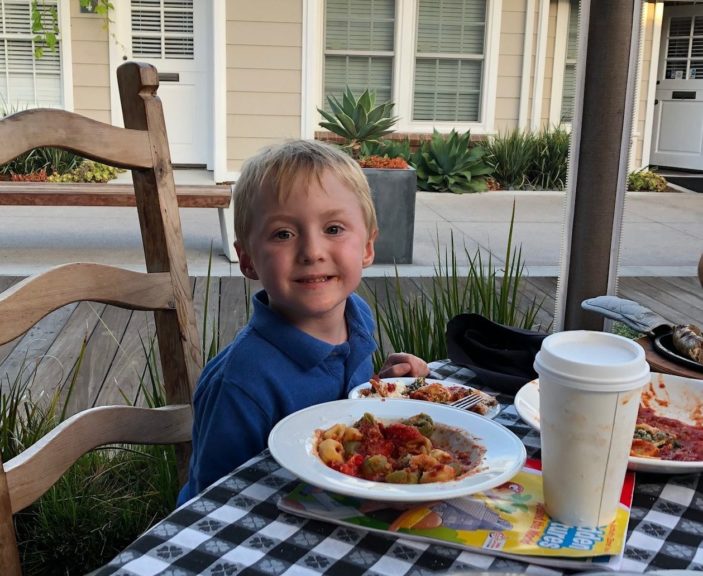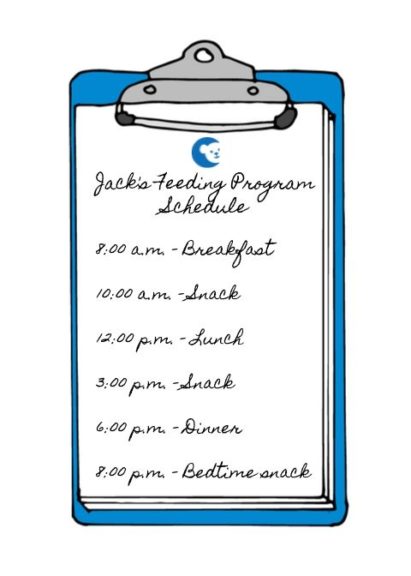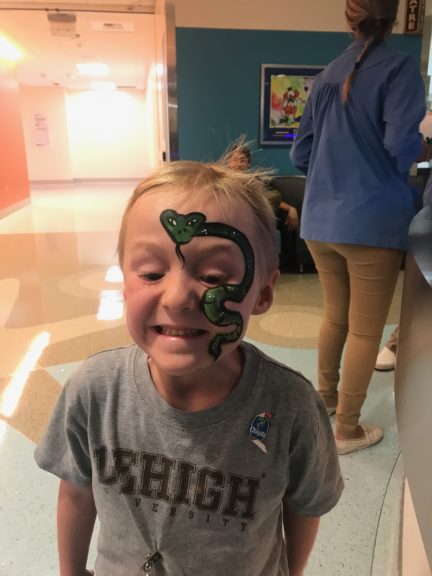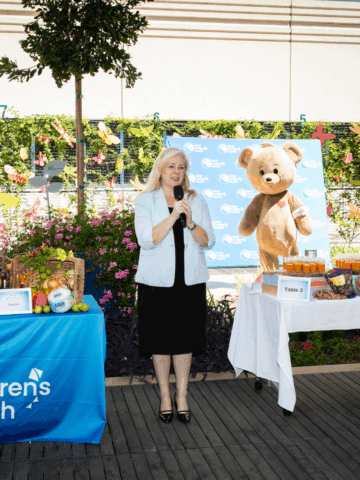Jack’s start in life was not an easy one.
He was born prematurely in northern California and immediately needed surgery for an intestinal blockage. He weighed only one pound and looked very sick.
The intestinal surgery was hard on his tiny body. “He was on life-support, and I was terrified,” said Meredith, Jack’s mom.
By five months old, he had gained weight very slowly and still struggled to keep food down.
Jack’s battle with food would last another 6 years.
“We looked everywhere for help but no one could give us any hope,” expressed Meredith. “Jack never ate much, showed signs of hunger or cried for food when he was a baby. We were given medication by our local doctor to make him hungry, but the side effects were horrible.”
Jack was much more than just a picky eater. Because of his prematurity, he missed normal feeding milestones. He didn’t learn how to experience food in his mouth and body or understand hunger signals. This made him uncomfortable and afraid when food was given to him.
By 6 years old, Jack was frail, his hair was falling out and he had been admitted to the hospital several times for dehydration. He would eat limited amounts of mac n’ cheese, cheeseburgers, strawberry hazelnut crepes and a specific type of pesto from the farmers market.
“People often would tell me that ‘Jack will eat when he’s hungry’ or ‘Kids don’t just starve themselves,’” says Meredith. “But my kid, who has feeding issues, would have 100 percent starved himself. Eating was stressful for him; it wasn’t fun, and it wasn’t enjoyable.”
Meredith felt lost until she found CHOC Multidisciplinary Feeding Program—she was afraid it was Jack’s last chance.

CHOC’s Feeding Program, started in 2003, is led by pediatric gastroenterologist Dr. Mitchell Katz. The first-of-its-kind program offers a comprehensive, positive and holistic approach to treating disordered feedings in a child and family-centered environment.
“I had a lot of anxiety coming here because I didn’t know what to expect or if it would even work,” says Meredith. “But the second I stepped into this place, it was wonderful. For the first time, I felt like I had support and a team who can help take the lead instead of feeling like it’s all on me.”
Jack, of course, loved being at a hospital made just for kids. He was soon a regular at Seacrest Studios—an in-hospital radio station run by CHOC’s child life specialists—making music videos, playing games and just being a kid.
The Feeding Program runs over the course of three weeks and each child’s schedule at the hospital is planned every step of the way. Meredith and Jack’s typical day looked like this:

While most days follow the same schedule, Jack’s goals changed each week to focus on helping him learn new skills. During the first week, Jack was treated by a feeding therapist for all his meals while his mom watched from a separate room. A psychologist or social worker explained to Meredith the therapy and strategies being used along with Jack’s reactions. By the third week, feeding sessions began to mimic meal times at home. Both parents could participate and lead mealtimes so they would be confident and prepared to feed Jack at home.

Jack made rapid progress. Before the program, he was consuming around 800 calories a day. By discharge he was consistently accepting 1,600 to 2,000 calories every day. This intake came from high-quality foods including vegetables, omelets, fruit, sandwiches and also, from foods that you would expect all kids to love: blueberry pancakes and bean and cheese burritos. These were all items that he would never have touched before.

Jack’s remarkable journey is a credit to his integrated and skilled team that has consistently seen a high rate of success. It is also a credit to the way Dr. Katz connects with his patients.
“Dr. Katz calls Jack ‘Nose’ because of the funny thing he used to do with his nose whenever he was introduced to new foods,” says Meredith. “In return, Jack calls Dr. Katz, ‘French Toast.’”
Coincidentally enough, if you ask Jack what food he loves now, he’ll emphatically say French toast…with lots of maple syrup.





